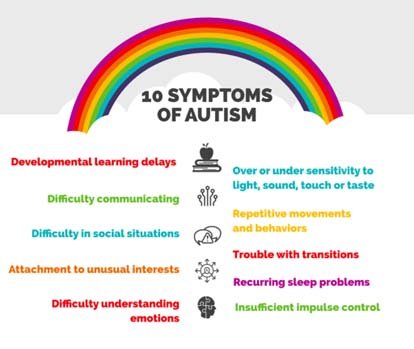Autism Spectrum Disorder (ASD)
Context :
- According to the Diagnostic and Statistical Manual of Mental Disorders (DSM5), ASD is considered to be a single disorder.
- The previous system of classifying different levels of autism is no longer used.
About ASD :
- Autism spectrum disorder (ASD) is a complex developmental condition that affects social communication, interactions, and behaviour.
- In India, it remains widely misunderstood and underdiagnosed.

- Signs of ASD can vary but difficulty with social interactions, communication challenges, repetitive behaviours, and restricted interests are common.
- Early diagnosis and intervention are crucial for better outcomes and support for families.
- To ensure a culturally sensitive approach to assessment and treatment, it is important to consult qualified healthcare professionals experienced in diagnosing and treating ASD in India.
The levels of ASD :
- The DSM5 assesses the severity of ASD by evaluating social communication and restricted, repetitive behaviours.
- The severity of ASD is determined by assigning a level of support such as 1, 2 or 3 based on the individual’s need for assistance and the impact of their symptoms on their daily lives.

Identifying autism :
- Getting an autism diagnosis for a child is a twostep process.
- First, the child receives developmental checkups during routine healthcare visits at around 18 and 24 months old.
- During these checkups, a doctor talks to the parent or caregiver about the child’s behaviour, development, and family history, and looks for signs of autism.
Tools for screening :
- Doctors have many methods to screen for autism, including informal observations and formal assessments.
- The methods can range from simple observations to more structured tests.
- One common screening tool is the Modified Checklist for Autism in Toddlers (MCHAT) Revised.
- This is a 20-question test for children aged 1630 months.
- However, recent evidence suggests that MCHAT may not be as effective at identifying autism in female children and those from minority, urban, and low-income backgrounds.
- The Ages and Stages Questionnaire (ASQ) is a general developmental screen that assesses developmental challenges at specific ages.
- The Screening Tool for Autism in Toddlers & Young Children (STAT) has 12 activities to assess play, communication, and imitation among toddlers and young children.
- ASD is a complex and multifaceted disorder that requires a multidisciplinary approach to treatment.
- Early diagnosis and intervention are critical to improving outcomes for children with ASD and their families.
- By identifying and addressing autism early on, individuals can receive the support they need and the therapies to lead fulfilling lives.
Syllabus : Prelims + Mains; GSII – Health


